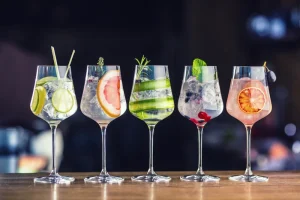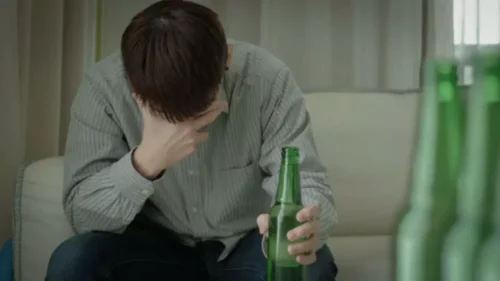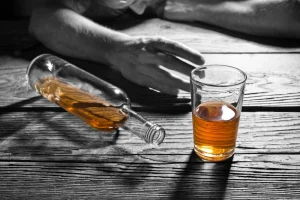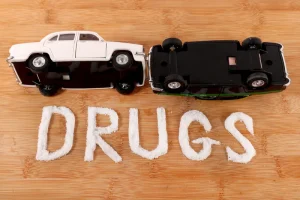
Not only might flaming desserts still contain alcohol, but they also send a mixed message. Understanding these psychological factors can help recovering alcoholics and their support systems develop strategies to manage sugar cravings effectively. It’s essential to address emotional associations with sugar and explore healthier coping mechanisms to replace the https://ecosoberhouse.com/ reliance on sugar as a substitute for alcohol. Understanding the link between alcoholism and sugar cravings is an important step in supporting individuals in their recovery journey. By addressing the underlying factors and implementing healthy coping strategies, recovering alcoholics can mitigate their cravings for sugar and focus on their overall well-being.
Could Drug Use Lead to Hair Loss?
While they share similarities, understanding their differences helps in choosing the right approach. Secure funding for substance abuse treatment and pave the way to recovery. Discover empowering gambling addiction treatment options to break free from the cycle. Explore the psychological, social, and economic factors driving substance abuse among the wealthy.
- The pleasant euphoria you experience when drinking becomes a reward, one that reinforces your desire to drink in certain situations.
- From there, they taper off eventually, usually within a week or two.
- In CBT, a counselor works with you to identify these negative thought patterns and teaches you how to challenge and replace them with more positive, realistic thoughts.
- Alcohol’s impact on these neurotransmitters can disrupt the delicate balance in the brain, potentially leading to increased sugar cravings.
Understanding Sugar Cravings in Alcohol Use Disorder
Unravel why recovering alcoholics crave sugar and the biological and psychological factors at play. An uncontrolled sugar habit not only potentially derails your sobriety efforts but can also lead to health issues like weight gain, diabetes, and heart disease. Adapting a healthy, balanced diet can help regulate your sugar intake, ensuring a more successful recovery. After understanding the basics of managing sugar cravings post-alcohol, let’s look at some healthy alternatives that are not just satisfying but add to your overall well-being. Healthy alternatives may sound boring or may make you roll your eyes, but that’s only because we get used to instant gratification while we’re drinking.
Influence of Dopamine Release on Cravings
- Intermittent, excessive sugar intake can lead to behaviors similar to drug addiction, including bingeing, withdrawal, craving, and cross-sensitization.
- Understanding these influences can help in managing sugar cravings in alcohol recovery and potentially prevent the development of conditions like sugar addiction and obesity.
- With the right strategies, support, and a focus on overall well-being, individuals in recovery can navigate the challenges of sugar cravings and continue on their path to long-lasting sobriety.
Often, the body can misinterpret dehydration as a craving for sweets. Therefore, staying hydrated is essential in managing sugar cravings during recovery. Sweets are a decent snack occasionally, but recovering addicts should be more focused on combating their nutritional deficiencies with healthy snacks, meals, and drinks. So no, sugar cravings aren’t bad on their own, but they can lead to negative consequences, and other snacking options provide more benefits while recovering.

Many individuals with alcoholic liver disease also have glucose intolerance or diabetes [4]. Experiencing sugar cravings is common for people with substance abuse issues. Sugar affects the brain’s neurotransmitters, similar to the dopamine rush caused by drinking. This can lead to medical complications, increasing the risk of type 2 diabetes and other cardiovascular diseases. Understanding the biological factors that contribute to sugar cravings in individuals with alcohol use disorder (AUD) is essential to gaining insight into this phenomenon. Interestingly, the study also revealed that consuming sweets earlier in the day predicted higher alcohol cravings later in the day [2].
- Discover the truth behind «Does drinking alcohol cause hair loss?» Learn causes, effects, and recovery tips.
- Other factors in moderate drinkers’ lives may contribute to the positive outcomes [6].
- Break free from denial in addiction with effective strategies and professional guidance.
- Explore the impact of genetics, environment, and more on substance abuse.
- Sugar cravings in recovering alcoholics can lead to a relapse if not managed properly.
- Dopamine, a chemical messenger in the brain, plays a crucial role in how we perceive pleasure.
- Alcohol is known to manipulate the brain’s reward system by increasing dopamine production.
Of course, alcohol and sugar cravings can sometimes go hand in hand. If you find that it’s hard to control your drinking without resorting to sugar, there are new ways to limit drinking urges. Sugar cravings after quitting alcohol sounds like a wacky idea, but it’s a real phenomenon affecting many recovering addicts. Why do alcoholics crave sugar, and can candy really help to achieve sobriety?
Understanding Protracted Withdrawal Symptoms

Combining medication with therapy and other interventions can prove even more helpful than medication alone. Understanding the three distinct components of your habit loop can help you come up with more specific strategies to overcome cravings when they pop up. Maybe you experience your strongest cravings when you feel anxious or stressed or find yourself facing conflict with someone you care about. She notes that it can help to avoid your triggers as much as possible in early recovery, since triggers are often most intense when you first stop drinking. Checking in with another person in your life who’s trying to stop drinking can certainly help you ride out a craving with someone who understands. “A typical craving might last for 3 to 5 minutes,” notes Christina Hanks, senior recovery coach and care team manager at Tempest.
Individuals in recovery may face sugar cravings instead of alcohol cravings, as the brain and body seek a sugar fix [2]. Understanding the genetic factors and overlapping mechanisms in addiction can provide insights into the cravings for sugar experienced by recovering alcoholics. By recognizing these influences, individuals can develop strategies to manage their sugar cravings effectively and support their recovery journey.
Discover the traits and dangers of an addictive personality and learn the crucial steps towards recovery. These days, there are plenty of mocktail recipes and nonalcoholic drinks meant to replicate your favorite boozy beverages. Drinking sparkling water with citrus or berries why do alcoholics crave sugar might also hit the spot. Try drinking them out of your favorite cocktail glass for a more similar experience. Rather than giving in to the craving right when it strikes, wait it out. Drink water or tea to fill your stomach, and see if the desire for sugar lessens.
